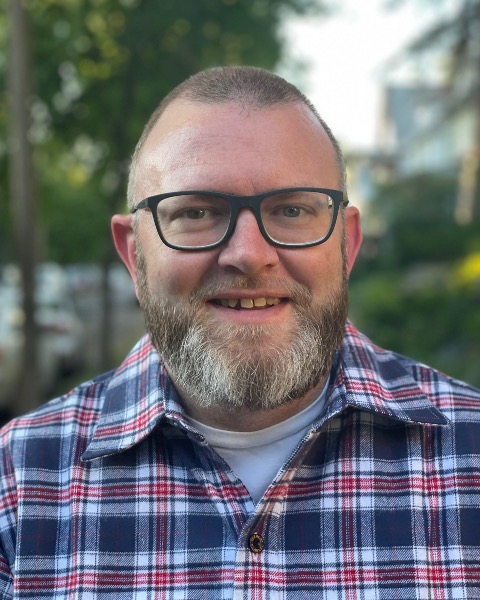Diversity and Inclusive Design
Exploring Rondo: St. Paul's African-American Cultural District
Saturday, April 13, 2024
1:30 PM - 5:30 PM CT
Location: Mobile Workshop Departure Area
CM | 2.75
Ticket Price: $62

Zakcq Lockrem, AICP (he/him/his)
Partner
Mend Collaborative
Minneapolis, MN- TJ
Tony Johnson
Saint Paul, MN
Lead Mobile Workshop Coordinator(s)
Mobile Workshop Coordinator(s)
Learn about the historic African-American Rondo Community, anti-displacement work being led by Rondo Community Land Trust and members of the Rondo Roundtable, and efforts to establish an African-American Cultural Enterprise District anchored by a land bridge over Interstate 94.
Rondo was the beating heart of the Twin Cities African-American community and home to thriving businesses, religious organizations, and social clubs, however, the economic and social diversity of the area was upended when the construction of Interstate 94 began in 1956. Approximately 600 homes and 300 businesses were razed to build the interstate, leaving the community torn in half and forever damaged by the destruction of the cultural and economic center of the African-American Community in Saint Paul. Following the construction of I-94, the Rondo community has experienced a 48% decline in home ownership, a 61% decline in population, and an estimated 157 million dollars of home equity lost from demolished homes in the I-94 corridor, and community is now experiencing a period of gentrification and on-going displacement.
In response to these challenges stemming from historic planning decisions, community organizations including the Rondo Community Land Trust and Reconnect Rondo were formed to help preserve affordability, mitigate ongoing displacement, and create an African American Cultural Enterprise District anchored by a land bridge over the interstate that was built through the neighborhood Their efforts are helping challenge the status-quo and driving innovative city planning and community development.
In this mobile tour, participants will learn about how land trusts operate and preserve affordability for both residential and commercial development, right-to-return frameworks, community-led small area planning, the proposed Rondo land bridge, the Rondo community investment trust and community reinvestment fund, anti-displacement planning, and ReConnect Rondo’s restorative development framework.
Rondo was the beating heart of the Twin Cities African-American community and home to thriving businesses, religious organizations, and social clubs, however, the economic and social diversity of the area was upended when the construction of Interstate 94 began in 1956. Approximately 600 homes and 300 businesses were razed to build the interstate, leaving the community torn in half and forever damaged by the destruction of the cultural and economic center of the African-American Community in Saint Paul. Following the construction of I-94, the Rondo community has experienced a 48% decline in home ownership, a 61% decline in population, and an estimated 157 million dollars of home equity lost from demolished homes in the I-94 corridor, and community is now experiencing a period of gentrification and on-going displacement.
In response to these challenges stemming from historic planning decisions, community organizations including the Rondo Community Land Trust and Reconnect Rondo were formed to help preserve affordability, mitigate ongoing displacement, and create an African American Cultural Enterprise District anchored by a land bridge over the interstate that was built through the neighborhood Their efforts are helping challenge the status-quo and driving innovative city planning and community development.
In this mobile tour, participants will learn about how land trusts operate and preserve affordability for both residential and commercial development, right-to-return frameworks, community-led small area planning, the proposed Rondo land bridge, the Rondo community investment trust and community reinvestment fund, anti-displacement planning, and ReConnect Rondo’s restorative development framework.
Learning Objectives:
- Articulate how land trusts work to preserve long-term affordability for both residential and commercial developments and have a deeper understanding of community member's experiences with a land trust.
- Provide innovative solutions for preserving affordability in communities experiencing gentrification and displacement.
- Utilize community-led planning and restorative development frameworks in future planning efforts.
